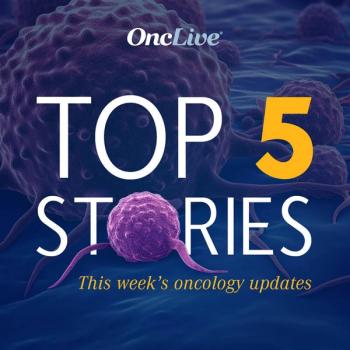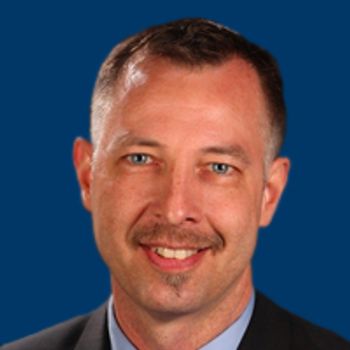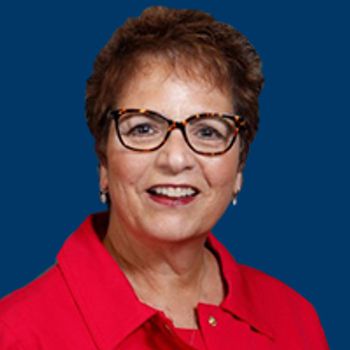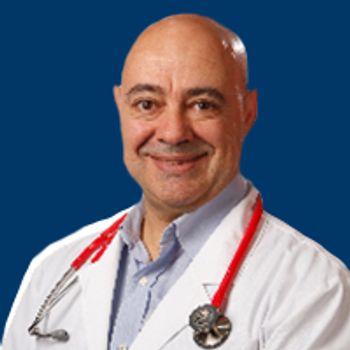
COVID-19 Crisis Results in Increased Risk of Distress, Burnout Among Oncology Professionals
The wellbeing and job performance of oncology professionals has been significantly impacted by the COVID-19 pandemic, and although the extent of this impact is varied between countries, it has been suggested to be related to the crude mortality rate of the virus.
The wellbeing and job performance of oncology professionals has been significantly impacted by the coronavirus disease 2019 (COVID-19) pandemic, and although the extent of this impact is varied between countries, it has been suggested to be related to the crude mortality rate of the virus, according to initial results from the ESMO Resilience Task Force Survey Collaboration presented ahead of the 2020 ESMO Virtual Congress.
“COVID-19 has changed our world. The entire oncology community has been facing rapid changes to help ensure the safety of our [patients with] cancer whilst maintaining care,” Susana Banerjee, MBBS, MA, PhD, FRCP, a consultant medical oncologist and research lead for the Gynaecology Unit at The Royal Marsden, said in a virtual press conference. “These changes include patient management plans, the way we deliver care, our daily working practice, taken together with our personal situations outside of work. The impact of COVID-19 on wellbeing has the potential for serious negative consequences on work, home life, and patient care.”
To examine and address the impact of the pandemic on oncologist and other healthcare professionals working in the cancer space across the globe, the ESMO Resilience Task Force Collaboration launched a series of surveys. The goal of the surveys was to assess how the virus has affected current daily practice, wellbeing, and burnout, as well as to understand what support is available to address such challenges.2
The surveys were disseminated online via email and social media, as well as through the OncoAlert network, according to Banerjee. The focus of the first survey, which ran from April 16, 2020, through May 3, 2020, was to learn more about the way the pandemic has impacted the roles of healthcare professionals in the space, how cancer care has changed in light of new information, how these changes are affecting wellbeing, and to measure available support. The second survey, which ran from July 16, 2020, through August 5, 2020, focused on the longer-term impact of the pandemic and other sequelae such as burnout and job performance.
A total of 1520 participants from 101 countries responded to the first survey. Two-thirds of responses were from Europe, 45% of participants were less than 40 years of age, 51% were female, and the majority, or 71%, of responders were of white ethnicity. Moreover, 70% were medical oncologists, while 22% were trainees. Notably, 67% of participants reported changes in professional duties since the start of the COVID-19 pandemic and 78% reported increased concern for their personal safety at work.
On April 24, 2020, investigators obtained the COVID-19 crude mortality rate according to country. “Wellbeing and COVID-19 job performance varied between countries and were related to COVID-19 crude mortality rate,” said Banerjee. “As mortality increases, [there is] higher distress and poorer wellbeing.”
A series of analyses were also conducted to further examine the association between the pandemic and other factors beyond crude mortality rate. Full data will be released during the conference, but Banerjee provided a snapshot of the final variables that were found to be significantly associated with outcomes of interest during the press conference.
Results showed that participants who reported higher levels of perceived resilience, pleasant working conditions, who felt valued by their organization had lower distress and thus, better wellbeing; many of these participants were also over the age of 40 years and were male.
Conversely, those under the age of forty and women reported higher distress. Participants who reported an increase in working hours, concerns about the impact of the virus on their training and career, who were self-isolated due to symptoms, who had reduced clinical trial activity, and had experienced changes in diet, were all at increased risk of distress.
Moreover, those who reported increased working hours with more out-of-hours work, and concerns regarding their training or career were also more likely to feel burned out. Adequate job control was associated with improved job performance since the pandemic started.
“Psychological resiliency was shown throughout to be a factor predicting wellbeing, burnout, and performance levels,” noted Banerjee.
A total of 942 participants responded to the second survey. Three months later, more participants reported risk of distress compared with what had been observed in the first survey, translating to higher rates of worse wellbeing; the percentage increased from 25% in survey 1 to 33% in survey 2 (eWBI ≥4; P <.0001). More participants in survey 2 reported feeling burned out than those who participated in survey 1, at 49% versus 38%, respectively (P <.0001). Notably, job performance in light of the pandemic continues to improve. Thirty-four percent of participants reported favorable job performance since the start of the pandemic versus 51% in survey 2 (score <3.5; P <.0001).
The ESMO Resilience Task Force also asked participants what they felt would be most helpful for them going forward. The majority of participants, or 86%, reported that having flexible working hours, including working from home, would be most beneficial. Eighty-one percent shared that having a workshop or course on wellbeing, burnout, and coping strategies would be useful. Seventy-nine percent of respondents said that counselling and psychological support services would be valuable, while 73% shared that having a practical guide, handbook, or self-help resource would be beneficial.
“This is the largest COVID-19 survey series [that has been done] for oncology professionals. Wellbeing and job performance varied between countries and was related to COVID-19 crude mortality rate,” concluded Banerjee. “COVID-19 is impacting wellbeing, burnout, and job performance, and main predictors include resilience and change to work hours. Risk of distress and burnout has increased, while job performance has improved during the pandemic. Urgent measures to address wellbeing are essential.”
A third survey is planned to launch in 2021, according to Banerjee, who added that the goal is to have more oncologists around the world to participate so that the ESMO Resilience Task Force can more closely examine the different ways in which the COVID-19 pandemic is impacting each country.
“The ESMO Resilience Task Force will be looking into furthering specific interventions so that we can continue to further help and support [oncology professionals] during the pandemic, and importantly, beyond.”
References
- Banerjee S, Lim J, Kamposioras K, et al. The impact of COVID-19 on oncology professionals: initial results of the ESMO Resilience Task Force Survey Collaboration. Presented at: 2020 ESMO Virtual Congress Opening Press Conference. September 10, 2020. Abstract LBA70.
- How are oncology professionals reacting to the COVID-19 outbreak? ESMO. Accessed September 10, 2020.
https://bit.ly/2GVJSih .






































